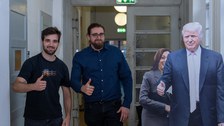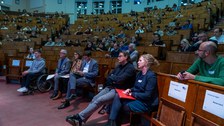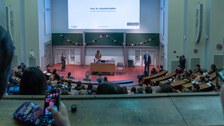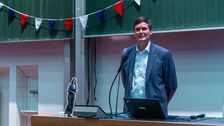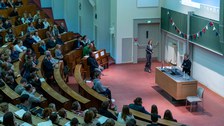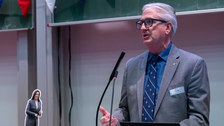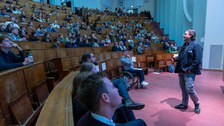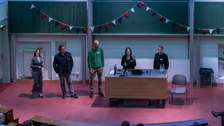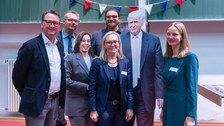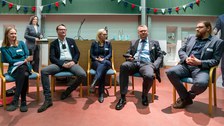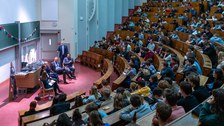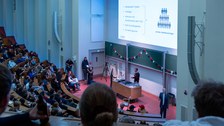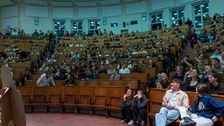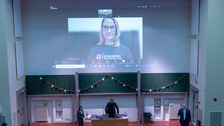Nov 13, 2024
Transatlantic relations in the focus of the US Election Night at TU Dresden
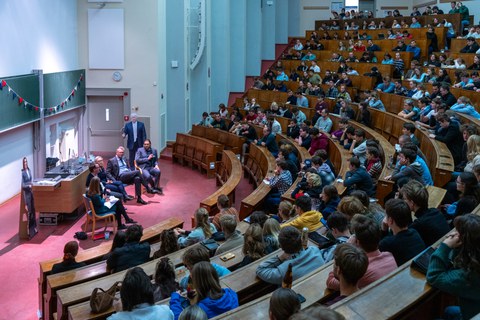
Panel discussion on the implications of the US presidential election
Transatlantic relations in focus at the US Election Night at TU Dresden
On the occasion of the US election, the Chairs of Political Systems and Comparative Politics and International Politics organized a multi-faceted event on the evening of 5 November to shed light on the potential impact of the US presidential election. The academic symposium brought together academic experts and voices from politics, society and business. In addition to exciting lectures and interdisciplinary workshops, the program included a panel discussion and live broadcasts to the USA. The event concluded with a public viewing of the first projections.
Welcome
At 5:30 pm, Stefanie Gerstenberger and Erik Vollmann opened the evening in the Lichtenheldt lecture hall with moderator Maja Finkel, IB student and Chairwoman of the IB Association. Prof. Dr. Anna Holzscheiter, Chair of Political Sciences with a focus on International Politics, welcomed the participants and emphasized the importance of the election, which was strongly influenced by the contrasting positions of the candidates. She called on those present to confront the populist narrative of insecurity in a combative and constructive manner.
This was followed by a greeting from Prof. Dr. Christian Prunitsch, spokesperson for the School of Humanities and Social Sciences, who addressed the "permanent state of crisis" and criticized the superficial rhetoric in the election campaign. He thanked all those who critically question these issues. Prof. Dr. Roswitha Böhm, Vice-Rector University Culture, then emphasized the relevance of scientific events such as the TUD Election Night, which work against polarization and populism and promote interdisciplinary exchange.
Political insights: Transatlantic relations and Saxony
Special greetings came from Dave Panetti, Consul for Public Affairs at the US Consulate General in Leipzig, and Conrad Clemens, Minister of State for Federal Affairs and Media. Panetti was optimistic about the future of the transatlantic partnership, despite the drama of the election campaign. Clemens, an "East German transatlanticist", emphasized the importance of the relationship for Saxony, which is both economically and culturally formative and will endure regardless of future political alliances.
Interdisciplinary perspectives: communication, climate and economy
This was followed by interdisciplinary lectures. Prof. Dr. Sven Engesser focused on communication in election campaigns and analyzed the candidates' strategies in social and traditional media. Dr. Manès Weisskircher focused on climate policy as a highly polarizing topic in the election campaign and showed how the environmental debates affected the electorate. Finally, Prof. Dr. Christian Leßmann explained the economic links between Germany and the USA and examined the possible consequences of the election on transatlantic trade.
Workshops on current topics
From 8 p.m., well-attended workshops were held on topics such as culture and media, democracy, economy and security. In the "Culture and Media" workshop, Dr. Karol Szulc, Zadekia Krondorfer and Dr. Michael Louis Moser engaged in a lively discussion about freedom of the press and polarization in reporting. In the workshop "Democracy in the USA, the EU, Eastern Europe and East Germany", Prof. Dr. Lukáš Novotný, Friedrich W. Opitz and Dr. Ivan Bakalov examined the challenges facing democratic systems. In the "Economy and Security" workshop, PD Dr. Antje Nötzold, Dr. Jochen Kleinschmidt and Junior Professor Dr. Valentin Lindlacher delved deeper into the connection between economic strength and political stability.
In addition, life-size cardboard cut-outs of Donald Trump and Kamala Harris provided humorous photo opportunities, which were actively used by the participants and created an exuberant atmosphere.
Panel discussion and election night live broadcast
Another highlight of the evening was the panel discussion at 9:30 pm, which dealt with the possible consequences of the election. Prof. Dr. Elvira Rosert, Dr. Jochen Kleinschmidt and Robert Beuthner (IHK Dresden, Head of the Foreign Trade Department) discussed the effects on the European security architecture and the challenges and opportunities for SMEs in Saxony under the moderation of Stefanie Gerstenberger and Erik Vollmann. Another focus was on the challenges and opportunities for SMEs in Saxony that could benefit from transatlantic trade relations.
From 23:00, a presentation by Jan Ecker, an IB student, on how the US electoral system works kicked off the hot phase of election night. A special feature of the program was the live link-up with Prof. Dr. Marianne Kneuer, who is currently conducting research at the Kellogg Institute at Notre Dame University. In addition to professional assessments of the election campaign, she shared her personal impressions of the mood in the USA.
The election watching then began with the results of the first states. Some students and guests stayed late into the night to follow the events in real time and continue the debate.
The Election Night at TU Dresden thus offered a comprehensive perspective on the election and its potential impact on transatlantic relations. It was perceived by participants as an inspiring and enriching experience that shed impressive light on current political challenges.
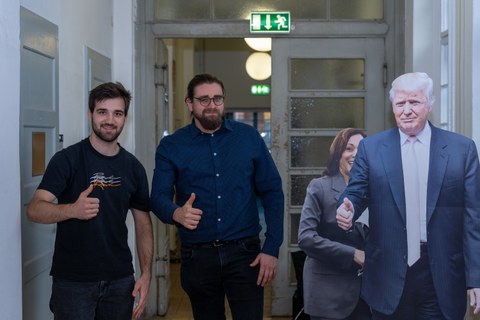
© Bastian Stock
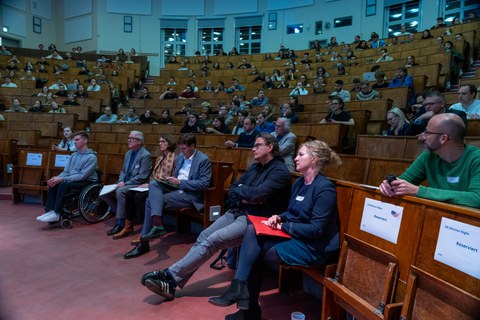
© Bastian Stock
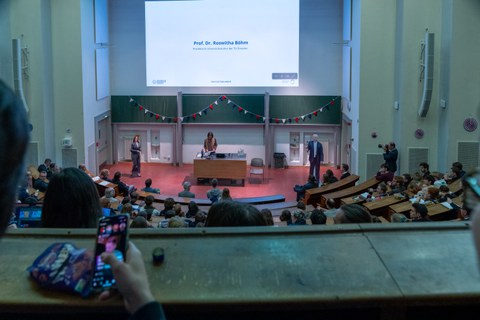
© Bastian Stock
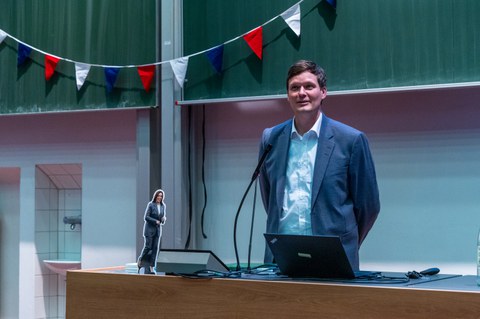
© Bastian Stock
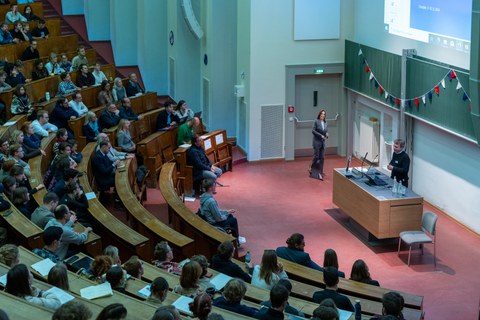
© Bastian Stock
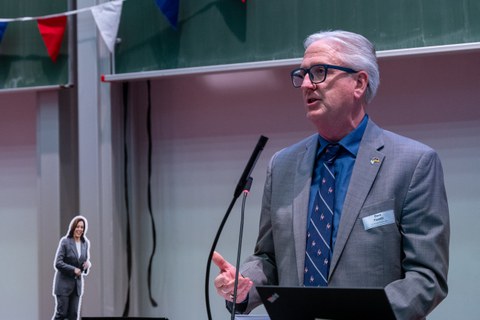
© Bastian Stock
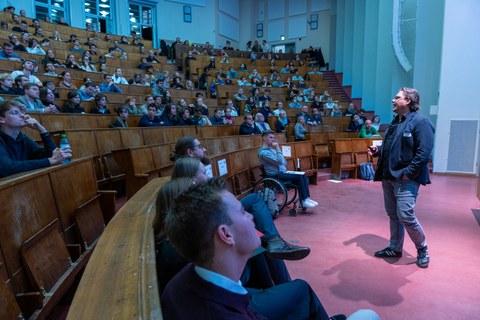
© Bastian Stock
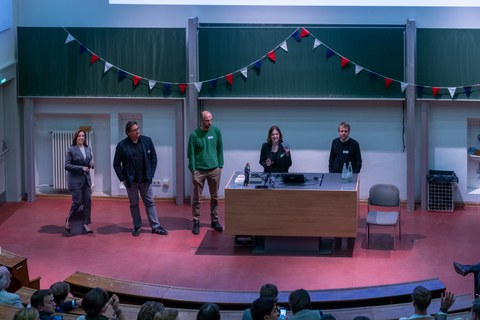
© Bastian Stock
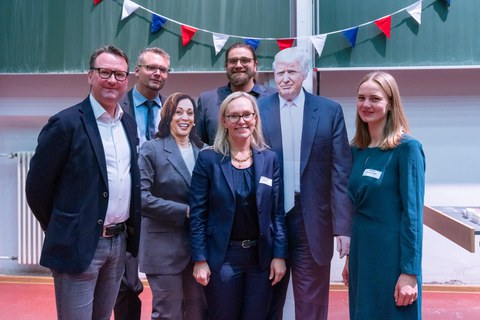
© Bastian Stock
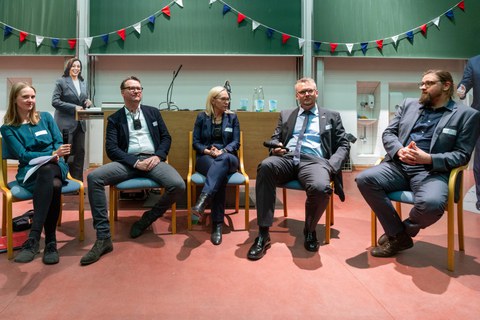
© Bastian Stock
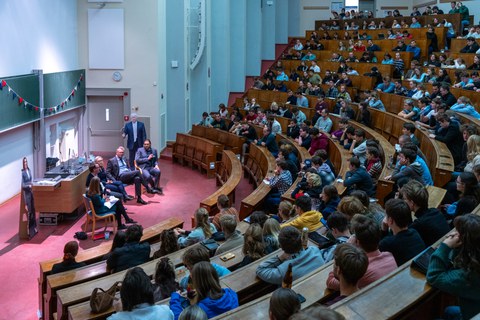
© Bastian Stock
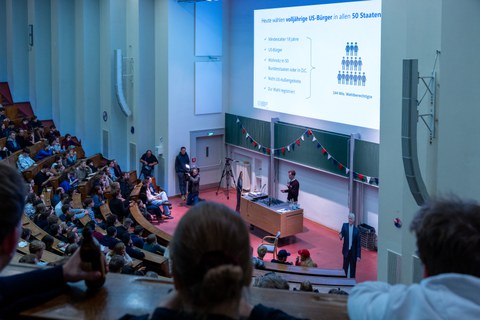
© Bastian Stock
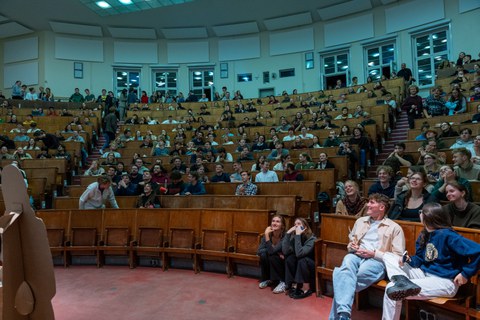
© Bastian Stock
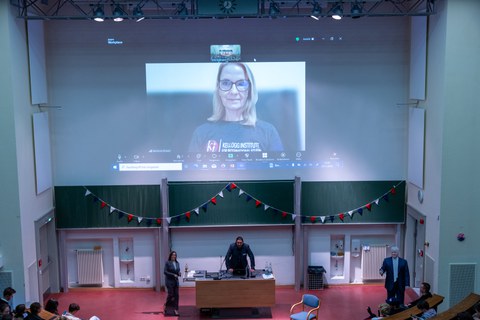
© Bastian Stock

